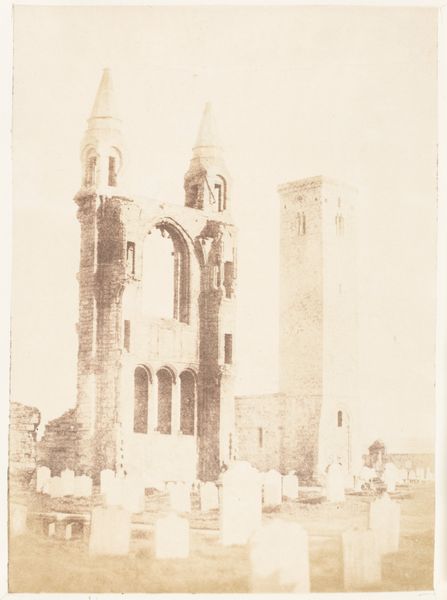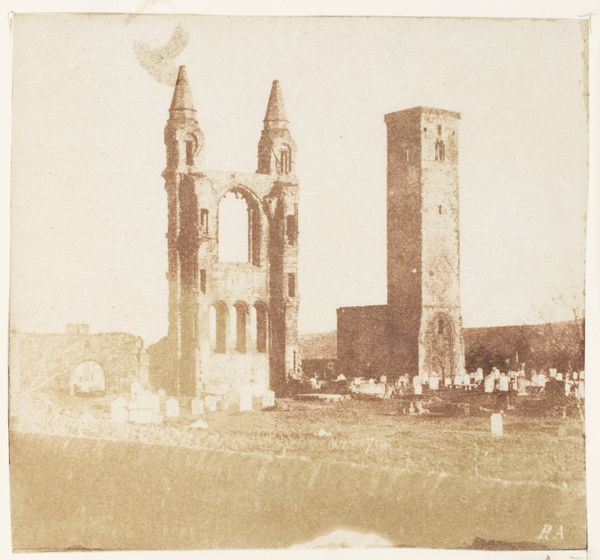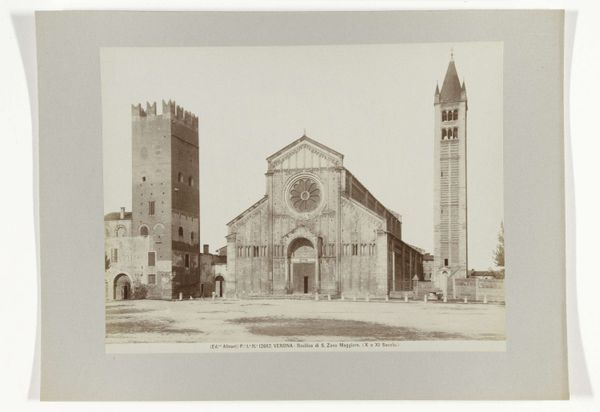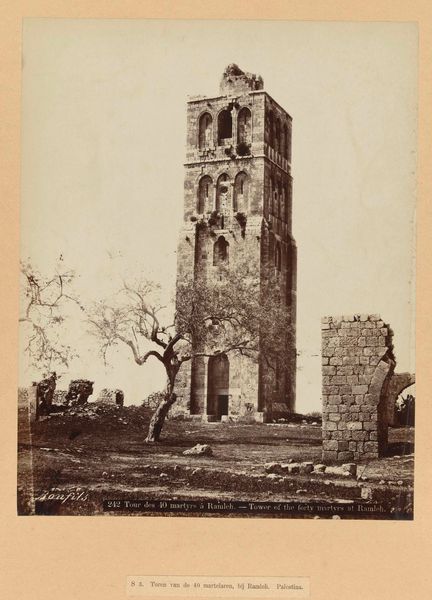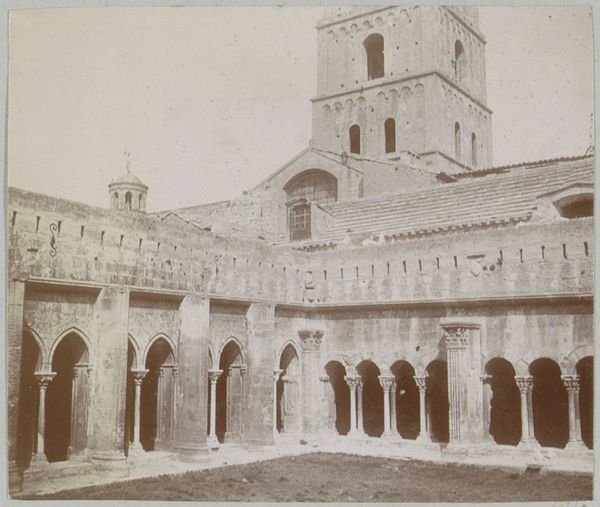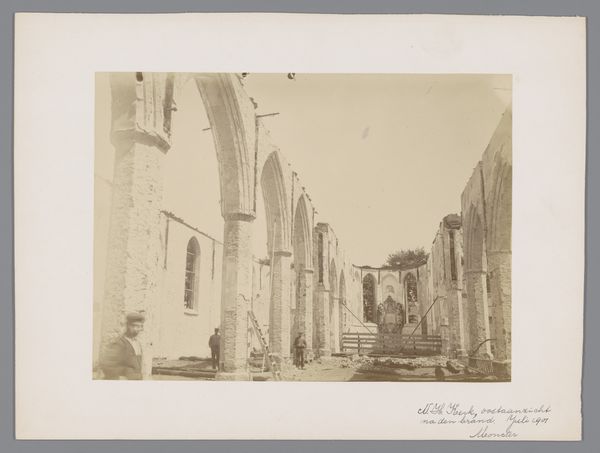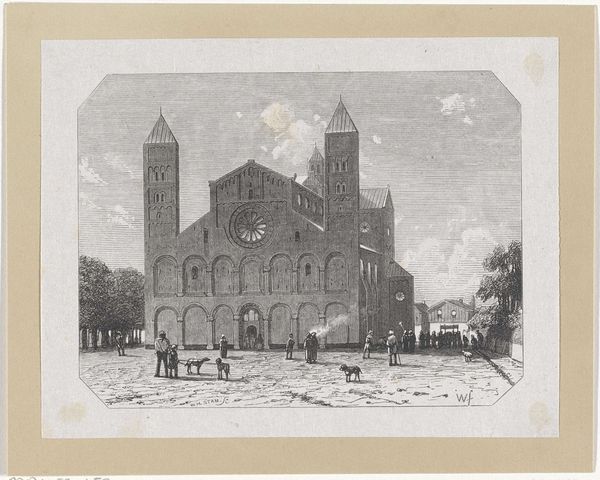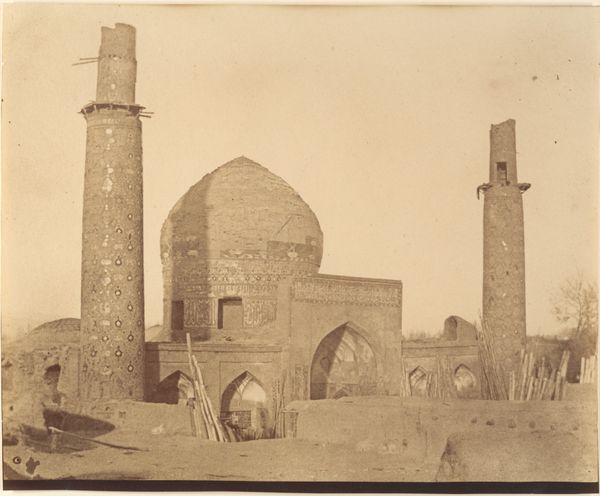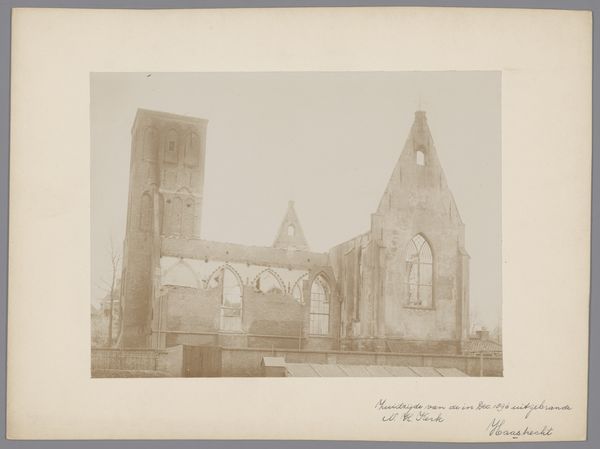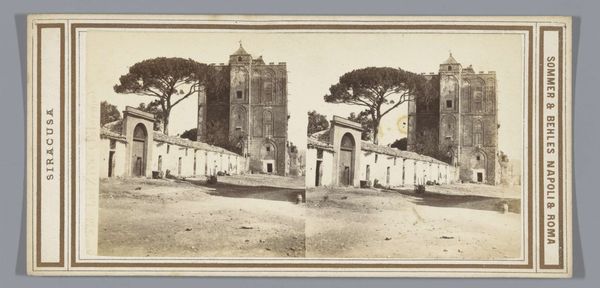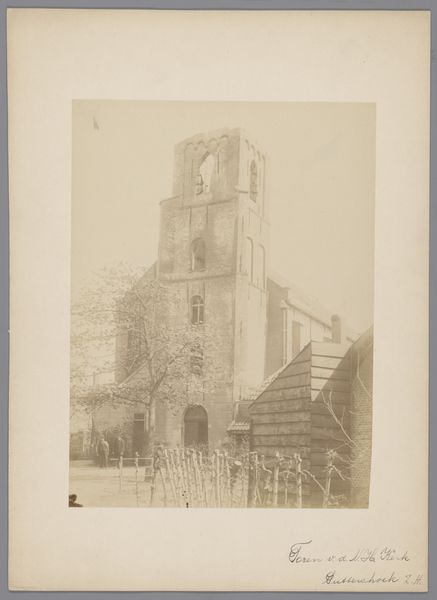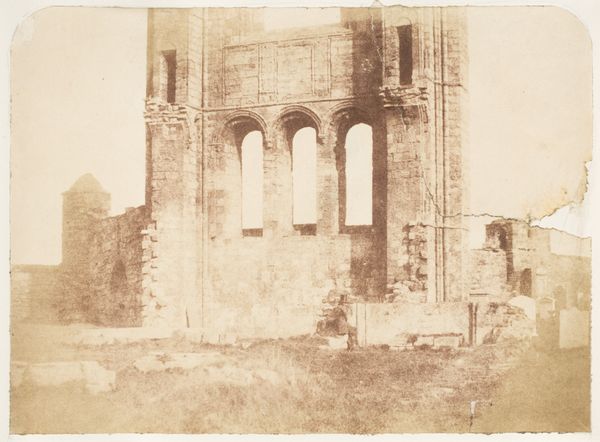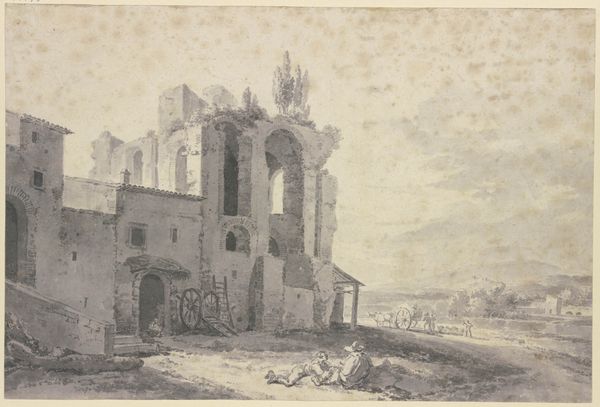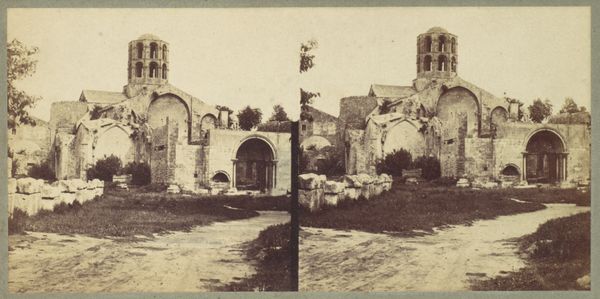
photography, gelatin-silver-print, architecture
#
landscape
#
photography
#
ancient-mediterranean
#
romanticism
#
arch
#
gelatin-silver-print
#
architecture
Copyright: Public Domain
Between 1843 and 1848, Robert Adamson and David Octavius Hill captured this melancholic image of St. Andrews, using one of photography's earliest processes, the calotype. As we gaze upon the skeletal remains of this cathedral, it’s easy to imagine how this echoed Scotland’s own fractured religious identity in the mid-19th century. Once a symbol of spiritual authority, St. Andrews now stands in ruins, a testament to the ebb and flow of power and belief. The graveyard in the foreground further emphasizes the passage of time and the transience of human endeavor. Hill and Adamson were deeply embedded in their Scottish context. Their decision to photograph the ruined cathedral taps into a broader cultural interest in ruins, which speaks to notions of memory, loss, and the sublime. This image invites reflection on the legacies we inherit and the stories embedded in the stones around us.
Comments
No comments
Be the first to comment and join the conversation on the ultimate creative platform.
